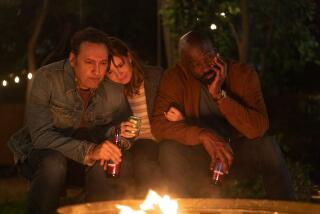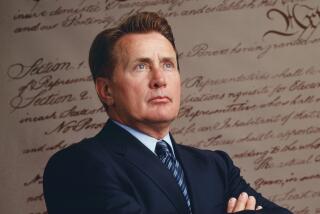After that wild âWestworldâ finale, the robots arenât the only ones disoriented
What just happened? What memory is this? Is this now?
Anyone who has watched HBOâs philosophical cowboy-robot drama âWestworldâ will recognize these questions as near-catch phrases for the unfortunate mechanized hosts who populate the showâs sadistic sci-fi theme park.
The programmed characters are often confused because their memories, âfree willâ and sense of time have been wiped, rebooted and manipulated so many times over two seasons, their concept of reality is as fluid and replaceable as the blood they leak per gallon every week while fulfilling the violent delights of human guests.
But it wasnât just the engineered gunslingers or hatchet-carrying natives who were disoriented during Season 2âs 90-minute finale Sunday.
Nothing short of âWestworldâsâ mastermind Dr. Ford (Anthony Hopkins) showing up in my living room with a new core drive and fresh syringe of cortical fluid could have helped me decipher the complicated seriesâ most complicated episode to date. That, or perhaps 16 more viewings, but who has that kind of time except a robot who has no sense of time?
The shifting timelines, free-range metaphysics, proliferating story lines and existential riddles of the last nine episodes collided rather than unfurled in âThe Passenger.â The big surprise of the Frederick E.O.Toye- directed episode wasnât an explainer moment where loose ends met but, rather, a post-credits scene where one more unfinished piece of business was introduced.
Without giving too much away, as if I even understood enough to do that, the Man in Black (Ed Harris) staggers out of a park Armageddon of sorts and realizes that the game set up by the late Dr. Ford isnât over by a long shot.
The unconventional ending was made for social media reaction, and that it got. It was also likely meant to whet appetites for Season 3, just as the last-minute massacre of the Season 1 finale did. A revolution was coming! Stay tuned!
The uprising started out promisingly enough in April when âWestworldâ returned. The hosts had taken over the park, seizing control from their human puppeteers and exacting revenge in all sorts of hideously creative ways.
But the explosive narrative fragmented into more twisting subplots with each episode, and the lofty, technology-versus-humanity dialogue made circumnavigating the mazes a laborious task.
The scattered narratives came with new settings too: Shogun World, the British Raj world, the âreal worldâ outside the bubble, the secret laboratories hidden underneath other secret laboratories. And the Cradle, the Valley Beyond, the Forge: Were they places, things, a frame of mind?
Some of these new diversions made sense Sunday, while many did not. Why did we go to India again, other than tigers and elephants?
The multiple layers of the season and finale nearly buried the showâs best characters: whip-smart saloon madam Maeve (Thandie Newton) and the damsel-in-distress-turned-bloodthirsty-revolutionary Dolores (Evan Rachel Wood) and their colorful entourages Hector (Rodrigo Santoro), Armistice (Ingrid Bolsø Berdal) and Teddy (James Marsden). Given the labyrinth of possible outcomes and the proliferation of new characters, itâs critical to have someone to root for, and empathize with, especially with all that cruelty and gore.
And there was so much gore.
âWestworldâ Season 2 dialed the brutality to 13. Humans (or was it hosts?) were used as railroad ties, spikes driven through their bodies. Beheadings were commonplace, hearts pulled out of carcasses, screaming men nailed to tables, brawls so primal that adversaries bit chunks of flesh out of one another. Delightful stuff.
The finale should have been the payoff for all the gratuitous savagery and those mind-bending subplots, providing at least a few redemptive âaha!â moments. That didnât happen, at least in a way I could understand without referencing the musings of âWestworldâ experts across the internet. Instead, like the hosts, I was left asking, âWhat the hell just happened?â
I turned to recaps for help, one of which explained that the finale âwrapped up so many of the showâs mysteries.â
Something about two doors, not just one, and a virtual heaven for hosts where their souls go but not their bodies (isnât that just a database?), humansâ inner thoughts being banked for data, and the very meaningful meeting of the Man in Black and Bernard (Jeffrey Wright). And there were the biblical allegories, apparently.
I missed all those clues, or were they conclusions? Is this real? Like the befuddled characters whose motherboards have short circuited, I have no idea. All the flashbacks and flash-forwards took their toll on this weary fan.
ALSO:
More to Read
The complete guide to home viewing
Get Screen Gab for everything about the TV shows and streaming movies everyoneâs talking about.
You may occasionally receive promotional content from the Los Angeles Times.







